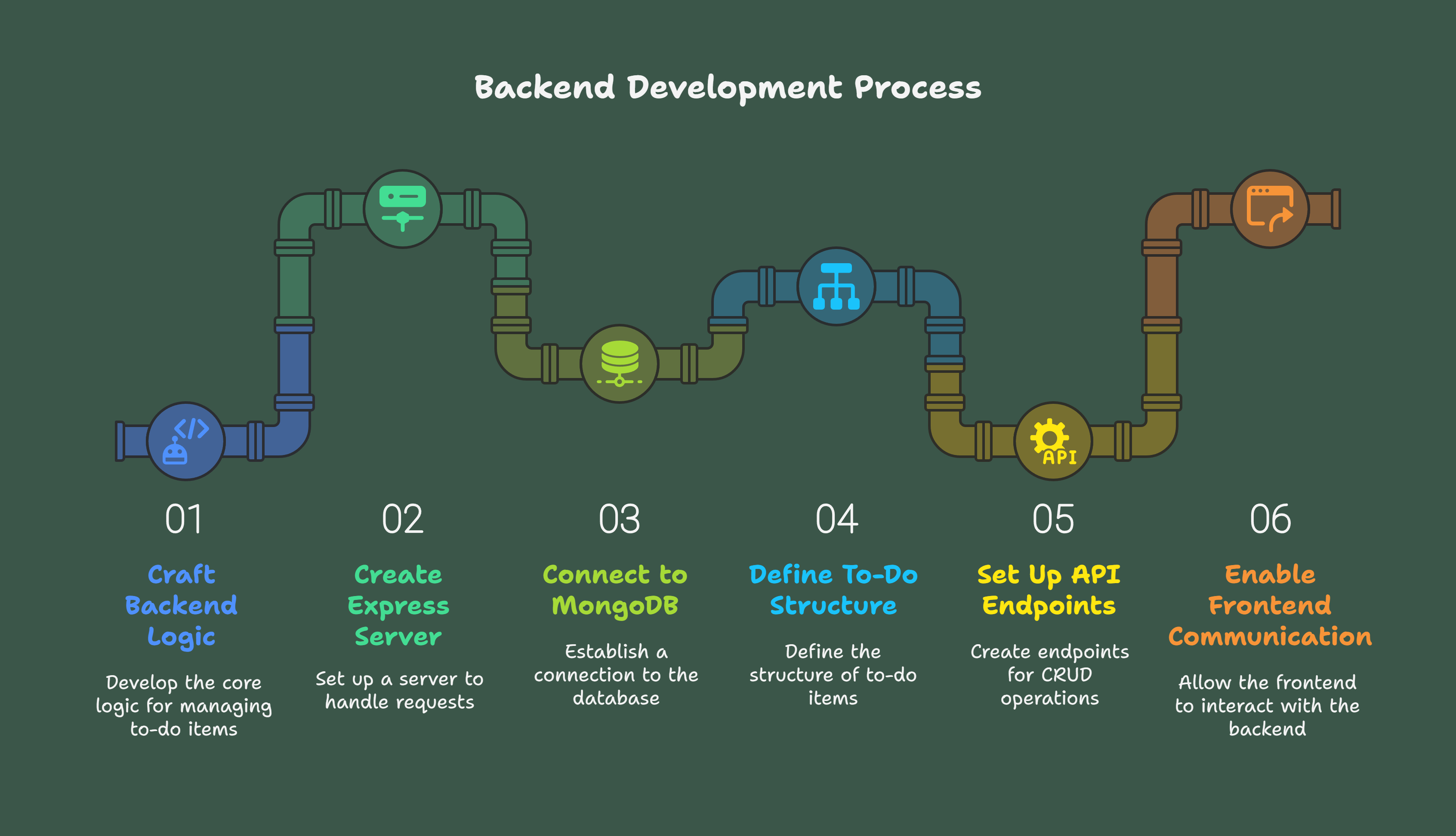Ever felt overwhelmed by a mountain of tasks? A to-do list can be a lifesaver. Even better, building your own to-do app is incredibly satisfying. This guide walks you through creating one using the popular MERN stack.
It’s like assembling a powerful robot with cool parts: MongoDB, Express.js, React, and Node.js. Ready to dive in?
Setting Up Your Development Environment
First, gather your tools. You'll need Node.js and npm (Node Package Manager). Download and install them from the official Node.js website.
Next, create a project directory and install the necessary packages. Use your terminal or command prompt and navigate to your project folder. Use npm or yarn for installation.
We’ll use npm here: npm install express mongoose react react-dom npm install --save-dev nodemon concurrently
These packages form the backbone of your MERN stack. express and mongoose handle the backend, react and react-dom create the user interface.
nodemon and concurrently make development smoother. The setup might seem a bit technical at first, but it gets easier with practice.
Exploring a career in Full Stack Development? Apply now!
Building the Backend
Start by crafting the backend logic. This is where your to-do items will be stored and managed using MongoDB. Think of it as the engine of your app.
Create a simple Express server and connect it to your MongoDB database. You’ll use Mongoose, an Object Data Modeling (ODM) library for MongoDB and Node.js.
Define the structure of your to-do items (e.g., task name, completion status). Then set up API endpoints to handle creating, reading, updating, and deleting tasks.
These endpoints act as bridges between your frontend and database, allowing your app to communicate effectively. This dynamic interplay is the essence of full-stack development.

Crafting the Frontend
Now for the fun part – designing what users see! Use React to create your app’s user interface. Imagine sketching out a blueprint and then bringing it to life.
Build components to display your to-do list, add new tasks, mark tasks as complete, and delete tasks. Make it clean and user-friendly. Consider using a UI library like Material-UI for pre-built components to expedite your development process.
Think about the overall look and feel of your app. Strive for a visually appealing and intuitive design. After all, who doesn’t love a beautifully functional app?
.png)
Connecting Frontend and Backend, and Deployment
Connect your frontend to the backend API endpoints you created earlier. Now your React components can interact with your database.
Data flows seamlessly between both parts, making your app dynamic and responsive. It’s like watching the different parts of your robot start working together.
Finally, deploy your finished app to a platform like Heroku or Netlify. This makes it accessible to the world.
Deployment might feel daunting, but it's like presenting your creation. Imagine launching your app and seeing it live. It’s a rewarding feeling!
Building a MERN stack to-do app is a journey, from setting up to deployment. It enhances your full-stack development skills and lets you create something useful. Embrace the learning curve and enjoy the process!
Remember, building software is an iterative process. Start simple, keep learning, and keep building. You'll be amazed at what you can achieve with the powerful combination of MongoDB, Express, React, and Node.js.
















